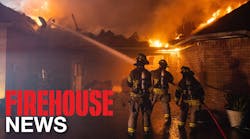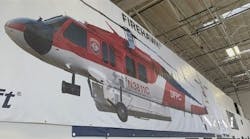PLATTSBURGH — If the Plattsburgh Fire Department switches to eight-hour shifts, as suggested by the mayor, it would be the only department in the state operating that way.
City Mayor Donald Kasprzak thinks the change from 24-hour shifts would save money, but the firefighters union says it would have the opposite effect.
SAFETY
The department comprises 36 firefighters, with four nine-member platoons that work 24-hour shifts with three days off in between.
Kasprzak thinks the city could save about $300,000 in the $5.4 million department by changing to eight-hour shifts — and he believes it would be safer for all.
“Who would want to go fight a major fire at 2 a.m. when they have been working for 20 hours and are dog-tired?” the mayor said.
“It’s just not safe.”
But Plattsburgh Permanent Firefighters Association President Terry Feazelle sees it differently.
He said 24-hour shifts are not an issue for trained professionals.
“It’s like anything else — you get used to it, and it doesn’t bother you.”
UP FOR DISCUSSION
Feazelle said the city has never officially asked to remove 24-hour shifts and that, if it did, the union would listen.
“It’s a nice sound byte, but we have seen nothing in writing,” he said.
He noted that the union has gone since 2008 without a new contract, as differences on many issues remain unresolved.
“If this was just about our schedule, we would have a contract.”
Feazelle thinks that if the city moved to eight- or even 10-hour shifts, it would cost more because of hold-over pay. Hold-over pay would come into effect if a new platoon came on duty and the previous crew was still out on a call that came in near the end of their eight-hour shift.
The department responds annually to about 3,200 ambulance calls and about 800 fire calls, many of which are actually for a fire truck to go assist the ambulance crews.
The number of actual major structure fires the department deals with is low: five in 2010, seven in 2011 and four in 2012.
The mayor says the hold-over pay argument is nonsense. He said the city did indeed ask for removal of 24-hour shifts in contract talks and that he believes the real reason the union won’t budge has nothing to do with hold-over pay.
“They won’t go to eight-hour shifts because they are more concerned about their second job,” Kasprzak said.
The mayor has criticized the firefighters for working a total of about 70 days per year each, which gives them time to hold a second job — he sees that as a luxury that most working people do not have.
Feazelle takes umbrage with that.
“What is wrong with wanting to work hard at two jobs to try to take care of your family?” he said.
“That’s the American Dream everywhere but here, I guess.”
MOST ON 24-HOUR SHIFTS
The New York State Professional Firefighters Association represents 104 career, professional, paid fire departments and 18,000 firefighters in the state.
President Michael McManus said about 75 to 80 percent of those departments utilize 24-hour shifts.
He said an in-depth study showed that 24-hour shifts are better than 10- or 14-hour shifts, and he does not know of any eight-hour shifts in the state.
“I’ve never heard of them (eight-hour shifts) working,” he said.
McManus said a major drawback to eight-hour shifts is that there would be more sick time taken in three eight-hour shifts than in one 24-hour shift.
“You would have three shift turnovers, and with just one shift turnover, there is less sick time taken,” he said.
He also said that with eight-hour shifts, you would have 21 people working in a 24-hour period with seven-member platoons, which is significantly higher than just seven firefighters on for the entire day.
“You got all that payroll to do,” McManus said.
“It seems like they are trying to re-create the wheel here, and it is out of whack in this day and age.”
SICK COSTS
The mayor doesn’t buy the sick-time argument.
“This is about safety and savings being the priority, not the opportunities to call in sick,” he said.
“This is obviously one of the many disagreements I have with the fire union and their mentality.”
Kasprzak also said that if a firefighter on a 24-hour shift calls in sick, the city has to pay someone to replace him with 24 hours of overtime pay, which is more expensive than paying someone eight hours of overtime to cover a shift.
MINIMUM STAFFING
Councilor Chris Jackson (D-Ward 6) has also taken up the effort to find ways to save money in the Fire Department. At the top of his list are utilizing volunteers and getting rid of the minimum-staffing requirement.
Jackson said the city had a $5.6 million general fund balance at the end of 2011. That was reduced by $1.6 million in the 2012 budget and $2.3 million more in the 2013 budget.
At this point, the situation don’t look much better for the 2014 spending plan, Jackson said, and that probably means departmental cuts next year.
The firefighters contract contains a minimum-staffing clause that requires 36 paid firefighters. That means, Jackson said, other departments will take more of the brunt of any layoffs.
“We need to treat every department equally when it comes to cutting services.”
Feazelle said he doesn’t want to see any city employees laid off, but his concern is keeping enough firefighters on hand for a rapid and effective response.
He said the department has been reduced from about 50 union personnel in the 1980s to the present 39.
“We can’t go any lower and maintain safety levels,” he said.
USE OF VOLUNTEERS
One proposal that has been discussed over the years in the City of Plattsburgh is a combination paid and volunteer fire department.
The city did have a hybrid system in place when Rescue Hose 5 was in operation to provide on-scene air-tank support to firefighters. That department closed at the end of 2008 after the city cut its funding from the 2009 budget.
Jackson said he has spoken with officials in Canandaigua, Geneva and Port Jefferson, communities that have successfully incorporated volunteers into their departments.
As for using volunteers to supplement paid firefighters, McManus said that, statewide, only about 10 departments do so. The reason more don’t, he said, is simply a matter of response time.
“Paid guys in the station can get into their (self-contained breathing apparatus) gear, get on the truck and get there in three or four minutes, and that is critical because the size of a fire doubles every minute,” he said.
“With a volunteer, he may be cleaning his gutters when the call comes, and he has to get down off the ladder, get in his car and drive to the station. It’s not as fast.”
HYBRID DEPARTMENT
Kasprzak took umbrage over that.
“It’s an insult to every volunteer from Long Island to the North Country that the president of the Firefighters Association doesn’t have (appreciation for) every single volunteer around the state,” the mayor said.
“Volunteer companies seem to work fine in most communities around here and elsewhere in the state.”
Jackson, who said he researched the issue, said that if there were a hybrid department, paid firefighters would be able to provide the same response time. Volunteers could assist those efforts as they arrive.
“Logic would dictate with a hybrid department there could be an immediate response augmented by volunteers,” he said.
Feazelle said that as long as there is no move to eliminate paid positions, city firefighters are willing to work alongside volunteers.
INSURANCE RATES
But implementing a hybrid department with volunteers could have a slight impact on residential and commercial insurance rates.
Alan Booth of the Booth Insurance Agency in Plattsburgh said municipalities are given ratings from 1 to 10 based on what kind of fire service is in place — and those ratings help determine the cost of insurance premiums.
The city, with a full-time, paid department and strategically placed fire hydrants, rates a 3.
The Town of Plattsburgh, with volunteers and fire hydrants, comes in lower, at a 5.
A more rural area, with no hydrants but within 5 miles of a firehouse, rates a 9.
Areas with no hydrants and no fire station within 5 miles is given the lowest rating, a 10, but there are very few of those, Booth said.
Dan Corbin of the Professional Insurance Agents Association, near Albany, said insurance rates are based on a complex formula involving the amount of payroll for a paid fire department, the population of the municipality and how many volunteers versus paid staff it has.
Should the city include a volunteer component, he said, insurance rates may go up slightly for the municipality and for home and business owners.
“It depends on a lot of factors,” Corbin said.
“But even if you change protection classes (rating), it still might not go up at all.”
Email Joe LoTemplio at: [email protected]
+++++
THE COST OF SAFETY
* This is the second of five articles looking at the budgets of the Plattsburgh City Fire and Police departments and proposals for change.
* Tomorrow: Operating without a fire chief.
Copyright 2013 Press-RepublicanDistributed by Newsbank, Inc. All Rights Reserved






